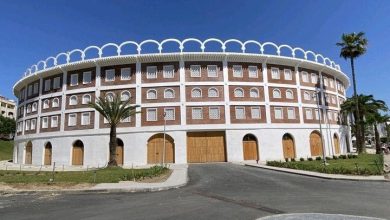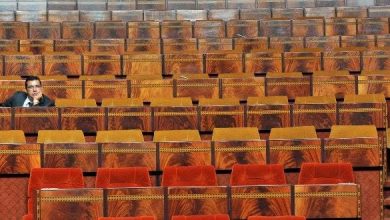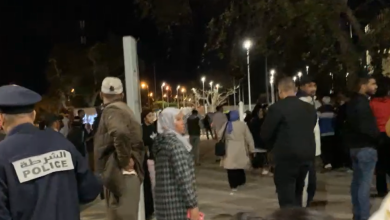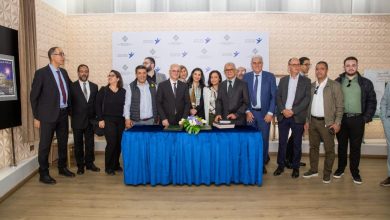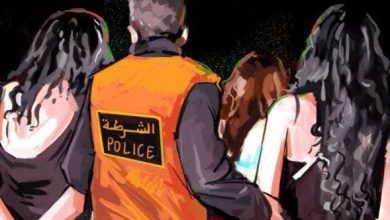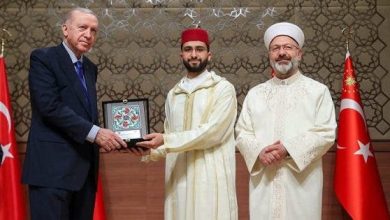The Moroccan Parliament improves international pleadings on the Moroccan Sahara
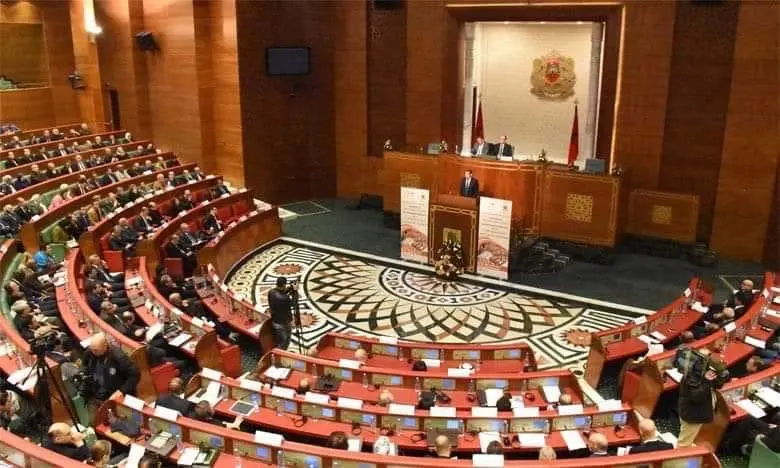
This article was automatically translated from HIBAPRESS, the Arabic version:
This article was automatically translated from Hibapress, the Arabic version:
A certain number of experts, today, on Monday, during a national symposium organized in the House of Councilors on “the Moroccan Parliament and the question of Moroccan Sahara: for effective parallel diplomacy and effective institutional argument”, the gains reached in the path of the national question thanks to the deserving of the Moroccan Dipomacy led by his majority King Mohammed.
Experts underlined, during a subject session on “the question of Moroccan Sahara through the management of the United Nations, the relevant developments and the prospects of the final solution to the file”, in the program of the question of the temporary objective group on the question of the territorial integrity of the kingdom of countries and recognition of the Moroccan Sahara.
The intervention noted the growing roles of national institutions, parliament, national institutions, human rights organizations and a civil society in the defense of the national question at African and international levels, whether by moving within international organizations or through parliamentary diplomacy.
In this context, Idris Al -Affair, on the Ministry of Foreign Affairs, African Cooperation and Moroccans residing abroad, stressed that sovereign diplomatic decisions that constitute recognition of the Moroccan desert are compatible with all diplomatic standards and practices, in particular with the 1963 Vienna Agreement, which governs consular relations.
In his intervention, Mr. Al -Affair added that clear support for Moroccan Sahara is embodied at the realistic level, by holding joint committees between Morocco and a certain number of friendly African countries both in El -Ayoun and Dakhla, as well as regular exploratory visits by foreign delegations to support the development of southern regions.
He declared that the United Nations must take these concrete denominations into account in the Moroccan Sahara, in the context of his treatment of this question, stressing that this important development explains that it is not possible to develop a solution to the question of Moroccan Sahara, except in the context of respect for the real sovereignty of Morocco and its complete territorial integrity.
He recorded that Morocco goes ahead and with a constant pace on the path of the search for a solution to the problem in the context of full respect for its territorial sovereignty.
For his part, Al -Moussawi Al -Ajlawi, researcher at the African Center and in the Middle East for studies, tackled the historic path that the question of Moroccan Sahara was made, whether at the level of the United Nations or at the level of the resolutions of the Security Council.
The academic stressed that the Moroccan initiative for self-government, that Morocco has submitted to settle this file, is integrated and entered into the framework of international legitimacy.
In turn, the chief of the International Observatory for Peace, Democracy and Human Rights, Aisha Al -Dweihi, registered that the course of the Moroccan question of the Sahara is experiencing decisive transformations motivated by the maturity of the Moroccan initiative.
In this context, she stressed that Morocco has moved from defense to the initiative, providing a realistic solution in accordance with international references and engaging in a proactive dynamic engineering which has reorganized the priorities of the file on an international scale.
On the other hand, Ms. Al -Duwaihi stressed that the approach of human rights was a basic lever to improve the presence of Morocco within the mechanisms of the United Nations, noting that repeated United Nations reports praised “the constructive interaction of Morocco” and the development efforts of the Sahara.
In turn, the political analyst, Saeed al-Tasmani, said that the Moroccan Sahara had become a geo-economic attraction thanks to major projects such as the Atlantic Port of Dakhla, as well as by the Atlantic initiative and the Nigeria-Morocco of the lawn.
Mr. Al -Tasmani underlined the need to institutionalize parliamentary diplomatic work, by creating a permanent parliamentary group to defend the Moroccan Sahara, which includes various political representations as well as legal and diplomatic experiences.
He has recorded that continental and international parliamentary organizations constitute strategic spaces in which the Moroccan presence should be extended and oriented towards taking positions in support of the autonomy proposal, in order to improve proactive parliamentary diplomacy.
(With)
.Hibawts {display: inine-flex; Align-Eeetems: Center; Justification-contained: Center; Background color: # 25D366; padding: .5rem 1.25rem; Police size: 1st; Link-Height: 1.5rem; Police-point: 500; -Tw-tox-opacity: 1; Transition time:. 7s; Transition timing funiating: Cubic-Bezier (. 4.0, 2.1); Width: 49%; } .HIBAWTS SPAN {Color: #FFFFFS; } Padding: 10px; Border-Radius: 10px; Color: #FFF; Police: Bold; Display: inheritance; Marge pot: 5px; } Padding: 10px; Border-Radius: 10px; Color: #FFF; Police: Bold; Display: inheritance; Marge pot: 5px; } Padding: 10px; Border-Radius: 10px; Color: #FFF; Police: Bold; Display: inheritance; } Width: 3rd; Height: 2m; ADIGNE VERTICAL: Middle; Display: online block; Marge: Var (-google -News-icon-Margin); } Url (“https://ar.hibapress.com/wp-constrent background-size: auto; background-size: 2m 2em;} url (” https://ar.hibapress.com/wp-content/themes/hibapress/hiba.svg?6.52#sshare- Telegramgramgramgramgramgramgramgramgramgramgrantargramess-size: Auto; last news from Heba Bress on x

